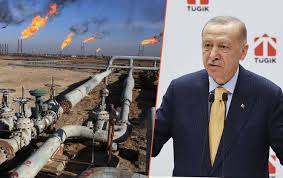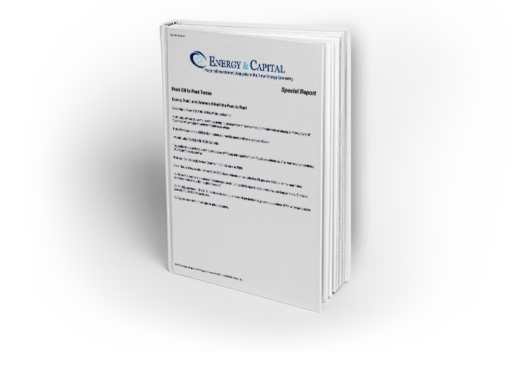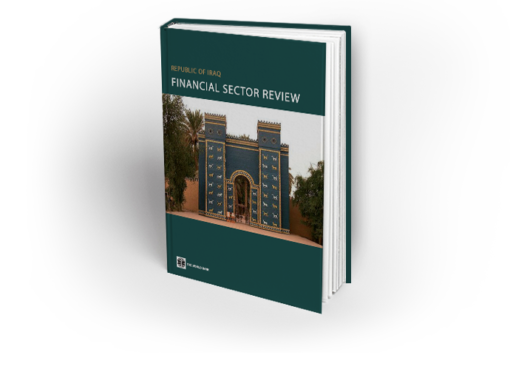Not since Jahangir Amuzeger’s study Managing the Oil Wealth: OPEC Windfalls and Pitfalls (2001) has there been an authoritative study of OPEC. This time Dr. Chalabi’s study is from inside the organisation and for the first time we get an opportunity to see the truth about the workings of OPEC as he sets about chronicling its history. From its beginning in 1960, when Standard oil cut the price it was willing to pay for its oil the governments of Iran, Iraq, Saudi Arabia, Kuwait and Venezuela met in Baghdad to form OPEC, to today we get an insight to the politics of oil policies. Up until now, the role of OPEC in the world of oil has been one of mystery and exaggeration. Seen by some western economies, especially the USA, as the priors of economic recessions as oil price shocks have been quickly followed by economic downturns. The western media, governments and the IOCs has been quick to blame OPEC for the high pump prices. However, Dr. Fadhil Chalabi, Iraq’s representative, who spent many years at the heart of this organisation, identifies and dispels the myths and invites us to discover the realities, environment and evolution of policies that have shaped OPEC and the oil industry since its very beginning in 1960.
Dr. Chalabi exposes the events, debates and challenges faced by OPEC as he gives a firsthand commentary on Nassar’s Egypt, Gaddafi’s Libya and a detailed insight to Saddam’s Iraq. In fact his detailed analysis of Iraq’s oil politics is a prerequisite for any analysis of the current predicament that the country faces under its relatively new federal regime.
Initially, OPEC had faced open hostility from the oil majors who had controlled the supply with their own cartel for many years and from the major oil consumers. The Seven Sisters were quick to find alternative supplies in attempt to curtail the potential power of OPEC.
Dr. Chalabi reaffirms the fact that the colonisation and the greed of the international oil companies had led to underinvestment in old Persia and it’s impoverishment whilst Kuwait and Saudi Arabia oil fields were developed giving them the economic gains even in a period of cheap oil.
Many oil commentators see Libya’s Gaddafi as a true Arab hero pointing out that he was the first Arab leader to stand up to the oil companies and won a better deal for his country. All what happened in OPEC took place, thanks to what Gaddafi did. Gaddafi started the whole process of change. He took on Occidental, gained a higher price for his oil and greater share of the oil revenue. This event started a domino effect across the MENA region. Dr. Chalabi agrees that “Libya’s bold demands under Gaddafi heralded the new winds of change that were blowing through OPEC.” (p53). However, he rewrites history here pointing out that Gadifi did gain a higher price but that the small price increase hardly reflected the true difference in the quality of sweeter Libyan oil had over oil from the Middle East and that Gadifi went on to only serve his own interests rather his peoples or that of OPEC. (p65)
Nevertheless, the stranglehold of the oil majors was broken and OPEC gained for the first time a degree of power which came to the fore in 1973 when the Arab embargo, designed to punish the USA for its support of Israel, punished the world as oil prices quadrupled leading to unprecedented inflation rates in the developed economies. However, Dr. Chalabi assesses that the events of 1973 might have increased oil revenues by some 400% but only served to increase the demand for dollar strengthening both the currency and USA’s position as the world’s number one economy when these petrodollars were spent on American goods. A fact, that Henry Kissinger welcomed according to Dr. Chalabi. Furthermore, he points out that the events of 1973 brought about high prices and high profits for the IOCs and the financial institutions associated with the industry at the expense of businesses and drivers the world over. (p248).
Ironically, as Dr. Chalabi shows that this was the height of OPEC’s power as the IOCs pursued a policy of investment in new fields outside of OPEC to replace the reserves lost to nationalisation within OPEC and the major consumer states responded with energy efficiency policies and the world number one economy and consumer the USA attempted to pursue a self-sufficient energy strategy even developing wildly expensive offshore oil fields and encouraging the development of the tar sands of Canada. The IOCs had only cooperated with OPEC for a short period until they could marginalise the power of OPEC by seeking others sources of supply and regain their market power that the so called Seven Sisters had enjoyed for many a year. 1973 marked the end of the cheap oil era as the USA and the IOCs pursued a high cost high price strategy with OPECs compliance. OPEC became a follower of policy rather than a dictator. New high cost offshore oil discoveries in both Europe and the USA meant that high oil prices were desirable to all. The book in many ways only confirms the famous U.S. State Department quote that “American oil operations are, for all practical purposes, instruments of our foreign policy toward these countries.” The Tehran agreement might have been the time when “OPEC got muscles” according to one OPEC member but within a short period of time the IOCs and U.S. government energy policy had taken the power away.
The events of 1973 tarred OPEC with an image of a self-interest cartel hungry for oil revenues penalising the West with high oil prices which has never really gone away. This image serves only to deflect criticism from the IOCs and their profits. A fact revealed by Dr. Chalabi and much appreciated by the IOCs for the past fifty plus years. Dr. Chalabi reveals the truth of a group of heterogeneous economies most of whom are struggling to develop their oil industries whilst a few, often the small states, with the help of IOCs are enjoying the fruits of their natural oil and gas resources. The OPEC production figures highlight the truth as the supply of OPEC oil fell from a peak of 31mbd in 1979 to only 13mbd in 1986 rising slowly to 29mbd in 2008 during a period when world oil demand has been continuously rising. Since 1997 demand has increased from 60mbd to nearly 90mbd in 2008 only to fall back slightly as the current economic recession bit. In this period, world demand increased by some 50% whilst OPEC output increased by only 26% thereby highlighting the decline of OPEC influence upon the market. Dr. Chalabi’s advice during the 1980s of the need to invest to expand output to regain its market share rather than attempt price fixing fell mainly upon deaf ears. Thus, some thirty years later we are faced with an underdeveloped oil industry in the Middle East struggling to meet its own energy needs and export demand.
Dr. Chalabi points out that the rapid growth of the OPEC population from some 100million in 1960 to over 400million today has taken an ever increasing share of the oil produced for their domestic markets. It is interesting to support his argument with fact that it the OPEC countries as a whole have only seen balance of payments surpluses since 2000. For some members of OPEC oil was a curse preventing economic development as government came to rely solely on their oil revenues preferring to follow the USAs high price strategy rather than invest in the development of the industry by increasing output.
Dr. Chalabi shows that the cartel has not been a price fixer but a price taker as its market share and power has declined. OPEC has only recently been able to influence price when Saudi Arabia has played the role of swing producer due to its spare capacity. Price crashes such as 1997 have highlighted how slow supply in the market had been to subside and that price has usually risen due to a recovery in demand rather than a reduction in supply.
Like most cartels, the members may seem to have a common aim but individual self-interest rises to the surface and Dr. Chalabi gives a running commentary on how many NOCs are increasingly preoccupied with optimising the development of their own resources and supporting their own attempts to promote a degree of diversification in their own economies rather than to support the common objectives of OPEC. Meanwhile, other members have squandered the opportunities delivered to them by OPECs policies. Gaddafi had during his reign gone from hero to villain becoming the curse of oil personified. Dr. Chalabi suggests that the Libyan leader was empowered, corrupted and even unhinged by the boundless revenues he helped unleash. His Green Book and his obsession to be the Father of Africa led to him to give away his petro dollars whilst his people remained impoverished, his economy underdeveloped and Tripoli became dilapidated rather than a modern symbol of oil wealth. (p232) Urban legends of blacked out tankers leaving Libya for American refineries breaking established quotas now seem to be confirmed as Gadafi served and usually promoted the interests of the West at OPEC meetings for his own ends.
Although OPEC has been labeled a cartel by western commentators as Dr. Chalabi points out it has failed to act as one. (Chapter 14) It has failed to maintain its market share allowing self-defeating pricing and production policies to reduce its influence upon the market. It has allowed the price to rise at the behest of high cost non OPEC oil producers such as the USA leading to the development expensive offshore oil fields such as the North Sea and Gulf of Mexico. Even expensive and environmentally sensitive fields such as Alaska have become potentially viable under such policies. On shore expensive techniques such as tar sands oil and shale oil have come on stream whilst Middle Eastern low cost fields remain neglected and underdeveloped as high prices and increasing revenues from current capital investment have been sufficient to satisfy OPEC ruling governments and their fiscal budgets though most have failed to reach their economic potential.
Incentives to plan to meet long term demand trends have been few for OPEC members as revenue surpluses have been large and political sensitivities have encouraged a high price strategy. OPEC members have until recently failed to take seriously long term investment to increase production capacity looking instead to maximise short term revenue from existing capacity especially as OPEC members have many different goals and interests at stake. Disparate goals have usually made negotiation of any agreement extraordinarily complicated and often adversarial leading to the maintaining of a status quo rather than looking for solutions to the instability of the market by expanding investment in capacity building. Dr. Chalabi is critical of this situation claiming that “with the exception of Saudi Arabia, OPEC has done nothing to reinvest its colossal oil revenues in drilling activities, which have remained stagnant if not in perpetual decline, ever since OPEC first took over the industry from the oil companies in 1973.” (p244)
The book highlights the skills of diplomacy that Dr. Chalabi and other OPEC leaders needed to keep this disparate group of countries united over more than fifty years. You have to ask: How and why did countries with such major divergences in size, population, resources, economic structures, governmental systems, culture and ethnicity all follow the same path to political and economic development for so many years? The book sheds some light on this question as Dr. Chalabi and his OPEC senior colleagues deftly persuaded senior ministers and leaders that they had common objectives and benefits that could be achieved from joint action.
How did OPEC members benefit from their petro-dollar windfall? Where did all that money go? Why did the anticipated fortunes, affluence, political stability and liberation turn into austerity, deficits, debts, disappointment and decay for many OPEC members? The book provides the answers to these questions showing that these countries often suffered from poor leadership with egotistical and megalomaniac leaders bent on developing their own personal agendas. We are given a fascinating insight to the leadership qualities of Gadifi, Nassar, Saddam, the Shah of Iran and the Saudi royal family. In fact, at times, the book reads like a political drama as characters and geopolitical events conjure up conspiracy theories and intrigue that seemingly belong to a TV documentary or even a Hollywood film.
Furthermore, the true economics of the oil market are laid bare as Dr. Chalabi proves that OPEC had very little market power except in periods of rapid world economic growth when demand got ahead of supply and that the power of the cartel was undoubtedly a myth portrayed by consumer states who themselves were often dictating policy to OPEC as they were often in favour of high prices to maintain their own oil profits. The evidence is clear as OPEC’s failure to stabilise price and the ensuing price fluctuations only served to damage the development of most OPEC members. The folly of peak oil theorists is exposed (Chapter 12) as is the role of the speculators who only served to drive up prices to the advantage of the IOCs and high cost producers. Meanwhile, the $100 price fluctuations of 2008/9 caused fiscal chaos for most OPEC members as fiscal surpluses turned into deficits.
Reading through each chapter it soon becomes apparent that the economic failures of the OPEC members are often the result of the geopolitics of the MENA region. It is a story of one step forward two steps back. Religious and political rivalry allied to poor leadership often prevents the development needed to exploit the wealth of the oil and gas reserves. It is, as if we are often just at the tipping point of development only for political or religious chaos to ensue and turn economic development back to economic fantasy.
At times, the reader may be forgiven for believing that this Dr. Chalabi’s autobiography. Dr. Chalabi was one of Carlos the Jackal’s OPEC hostages in 1975 and the chapter detailing the events makes fascinating reading. The fact that he played such a significant and often pivotal role in the politics and leadership of OPEC becomes clearly apparent. The book gives his personal account of how the oil policies of the past fifty or so years have touched all of us and you are left feeling that if only producer and consumer states had seen their common interests and not foregone the missed opportunities the world and especially the Middle East would be a better place today.
*This review was first published on MEES Geopolitical Risks, Oct 2012
**Founder & CEO of Iraq Energy Institute, www.iraqenergy.org








Comment here